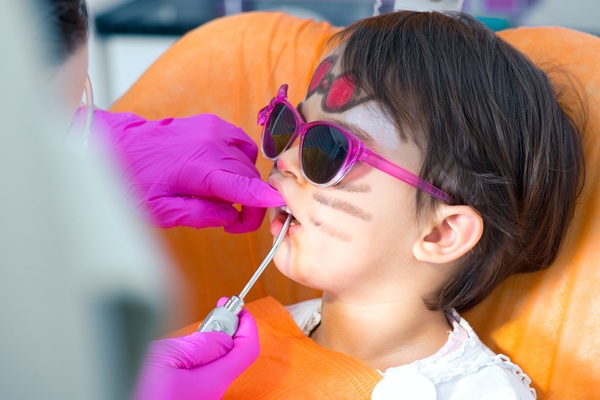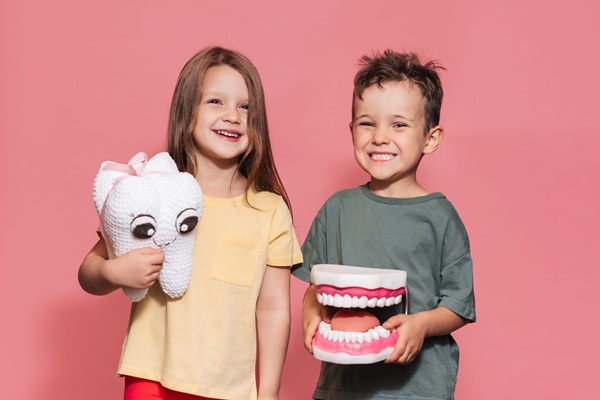How a Pediatric Dentist Does a Baby Root Canal

A baby root canal allows the dentist to save the child’s tooth. That way, it can stay in place until it is ready to come out. This is important because the baby teeth have several functions. You might be wondering how a baby root canal is performed. Read on to learn more about this type of tooth restorative procedure.
How a baby root canal is done
First, the dentist will numb the area. That way, the child will not have to feel any pain during the procedure. Next, a drill will be used in order to access the tooth’s canal. This allows the dentist to place tools into the root canal.
The dentist will use the tools to remove the infected pulp from the tooth’s chamber. Cleaning fluids might be used to help take out this diseased pulp. The child might have an X-ray taken then. This can help the dentist to see if there is any more pulp that needs to be removed.
After all of the tooth’s pulp has been removed, the dentist will use an antibacterial liquid. This will help to clean the root canal one last time. Then the dentist can dry out the root canal. The pediatric dentist will place a filling inside the root. In some cases, a steroid is placed in the root canal to prevent swelling. A crown will be used to protect the tooth after this.
After a root canal
The child might have some pain once the procedure has finished. This is even more likely to happen once the local anesthetic has worn off. Pain is a normal response. The child might have a pain medication or recommend one for the child to take.
The parent should ask the dentist when the child can drink and eat again. There might be some instructions for caring for the tooth after a baby root canal. For example, it may be wise to avoid brushing the area for the first night. If the child received a temporary crown, there might be a second appointment to apply the permanent crown.
Preparing a child for a root canal
This might seem like a scary procedure for a child. The good news is that parents can help calm the child’s fears beforehand. By explaining to the child what will happen, the parent can help the child understand it better. That way, the child will know what to expect. It is important to tell the child that there will be a medication that will help to minimize any pain.
Visit a dentist for a baby root canal
If your child has an infected tooth, a baby root canal may be the way to save it. Your child’s pediatric dentist can help you decide if a baby root canal is needed. Regular dental checkups are important for preventing decay. That way, the decay is less likely to reach the point where a root canal is needed.
Request an appointment here: https://www.babytoothdoc.com or call Dennis R. Campbell, DDS at (828) 254-7291 for an appointment in our Asheville office.
Check out what others are saying about our dental services on Yelp: Baby Root Canal Treatment in Asheville, NC.
Recent Posts
Preventive dentistry supports children's lifelong oral health by reducing the risks of dental issues before they occur. This approach to dental care emphasizes the importance of early intervention and routine checkups to protect developing teeth. As young patients age, their oral structures change, making it essential for them to receive the care they need to…
Preventive dentistry is a valuable component of your child’s oral health. Young teeth need the highest level of protection. Providing treatments that will keep your child’s teeth and gums healthy will elevate your child’s formative years. Here are the details about the role of preventive dentistry in your child’s oral health.Digital dental X-rays are part…
Finding a good kids special needs dentist is crucial, as it determines how well the child's dental experience will go. When it comes to a child with special needs, there is extra care and patience involved, which is why it is so important to find a good fitting dentist. Thankfully, there are a few things…
No sedation pediatric dentistry supports safe, comfortable care for children. This approach focuses on communication, behavior guidance, and child-friendly techniques instead of medication-based relaxation. Many families prefer an approach that keeps children alert and involved during dental visits while still protecting comfort and emotional well-being. A pediatric dentist who emphasizes sedation-free methods designs each appointment…


